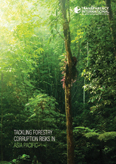Police-powers, regulatory takings and the efficient compensation of domestic and foreign investors
In customary international and public law, “takings” resulting from regulations designed to protect the public good are generally excluded from compensation rules; this exclusion is known as a police powers carve-out (PPCO). Increasingly, this PPCO is being challenged, particularly in international investment law. This paper analyzes the efficiency properties of a PPCO in a model with endogenous regulation, investment and entry.






